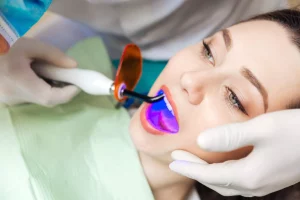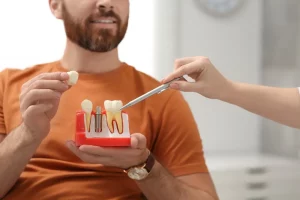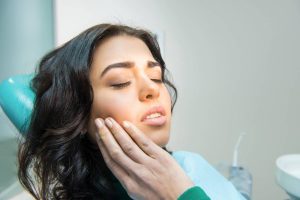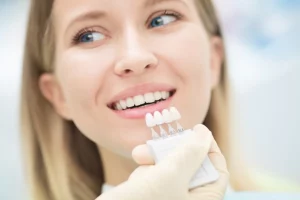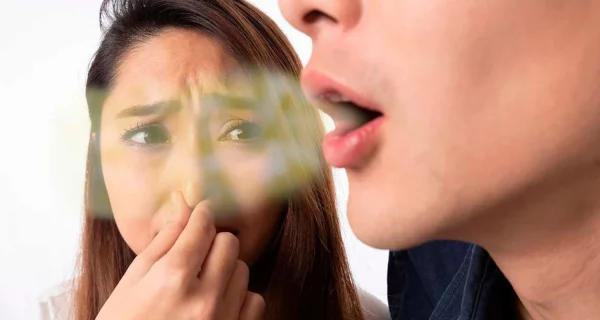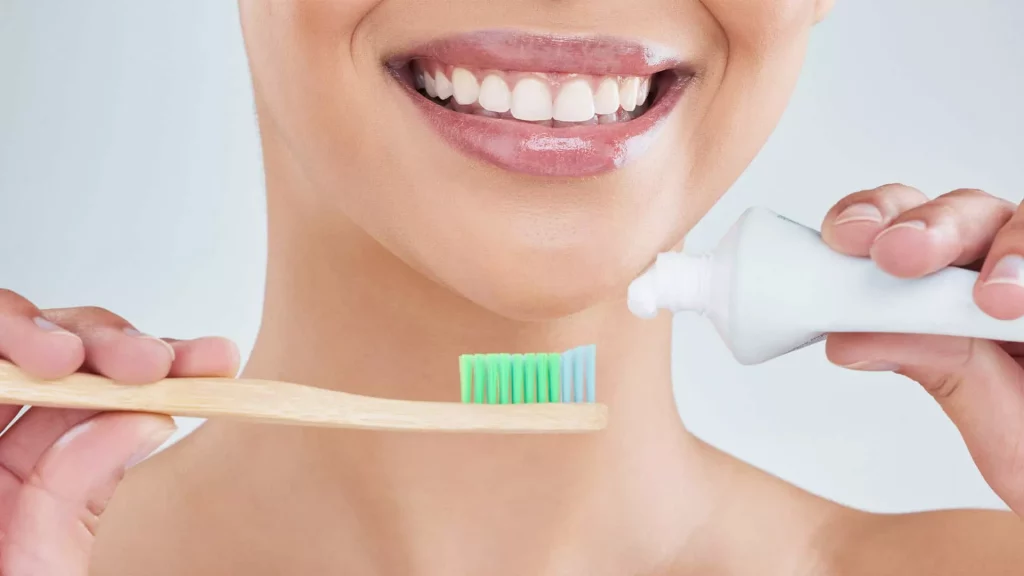Last Updated on: 13th November 2025, 06:48 am
Yes, it can. A lip sunburn over and over again can damage the skin and raise your chances of getting oral cancer, especially a type called squamous cell carcinoma. Protect your lips with SPF lip balm and avoid prolonged sun exposure to reduce this risk.
We often hear how important it is to use sunscreen to protect our skin from the sun’s rays. Most people have sunscreen at home and use it every day.
But what about our lips? Do you use a product to protect them from the sun, too? Lips are especially sensitive to sun damage. When they get burned over and over again, it can cause more than just pain or dryness.
In this article, we’ll talk about how lip sunburn affects your oral health, its connection to oral cancer, and the simple things you can do to protect your lips this summer.
What is lip sunburn and why does it happen?
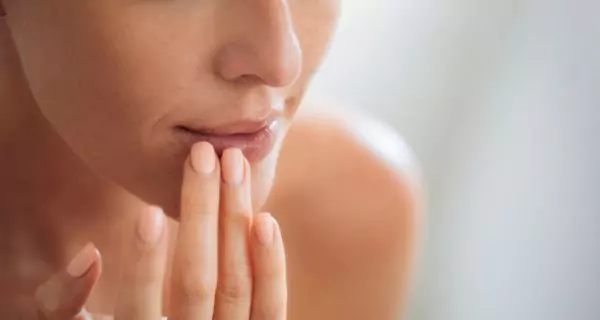
Lip sunburn occurs when lips are exposed to the sun for too long without protection. The skin on your lips is thinner and has less melanin (the pigment that protects against sun damage), making them more susceptible to sunburn.
Sunburn can occur in less than 15 minutes of sun exposure, especially during peak hours between 10 a.m. and 4 p.m., when UV rays are strongest.
What are the symptoms of lip sunburn?
Symptoms of sunburned lips vary depending on the severity of the burn. They typically appear within a few hours after sun exposure and may include:
- redness and swelling of the lips.
- tenderness or pain when touching the lips.
- dryness and peeling skin.
- In severe cases, small, white, fluid-filled blisters may develop.
These symptoms usually peak within 24 hours and can last between 3 to 5 days for mild cases. Severe sunburns may take up to two weeks to heal.
If you experience severe symptoms or if blisters develop, consult a healthcare professional for appropriate care.
Can lip sunburn damage your oral health?
Yes, it can. Frequent lip sunburn can lead to serious problems over time:
- dry, cracked lips, which make it easier for bacteria and infections to develop.
- delayed healing, especially if the lips get injured or irritated.
- actinic cheilitis: a type of chronic inflammation from sun exposure that affects the lower lip most often; it’s considered a precancerous condition.
How is lip sunburn connected to oral cancer?
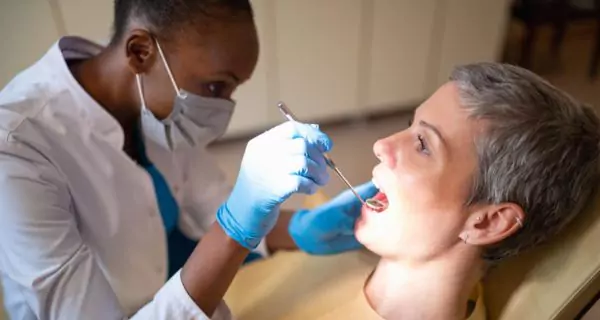
Lips are especially vulnerable to the sun. When lips are exposed to the sun too often without protection, UV rays can damage the DNA in the skin cells. Over time, this damage builds up and can lead to squamous cell carcinoma, a common type of oral cancer.
The World Health Organization (WHO) warns that excessive UV exposure is directly linked to various types of skin cancers, including those that affect the lips.
¿How is the Progression from sunburn to lip cancer?
Lip cancer doesn’t appear overnight. It develops gradually, often starting with what seems like a simple sunburn:
- Early damage: after too much sun, your lips might feel sore, red, or irritated. This is the first sign your skin has been damaged by UV rays.
- A wound that doesn’t heal: sometimes, instead of healing, the sore area sticks around. It may stay red, peel, or crack for days or weeks. If it won’t go away, it could be more than just a sunburn.
- Dangerous changes: inside that persistent wound, the damaged cells may begin to grow and divide in unusual ways. Over time, this can turn into lip cancer, even if it still looks like a harmless sore at first.
Who’s most at risk of lip cancer from sunburn?

You may be more at risk if you:
- work or spend a lot of time outdoors
- have fair or light skin
- use tanning beds or neglect SPF protection.
- Smoke or use other tobacco products
- have a weakened immune system
According to the National Institute of Dental and Craniofacial Research (NIDCR), the incidence rate of oral cancer is nearly three times higher in men than in women.
Additionally, the Canadian Cancer Society notes that the risk of developing oral cancer increases with age and is greatest after 45 years of age.
These findings highlight the importance of sun protection for the lips, especially for men over the age of 40.
What are the early signs of lip cancer?
Sunburned lips usually heal within a few days. But if the symptoms linger or get worse, it might be a sign of something more serious. Watch for:
- persistent dry or scaly patches
- a sore or lump that doesn’t heal
- discoloration (red, white, or dark spots)
- bleeding without a clear cause
- tingling, pain, or numbness in the lip or around the mouth
If these symptoms last more than two weeks, you should see a doctor or dentist right away. Early diagnosis makes treatment easier and more effective.
How can you prevent lip sunburn and oral cancer?
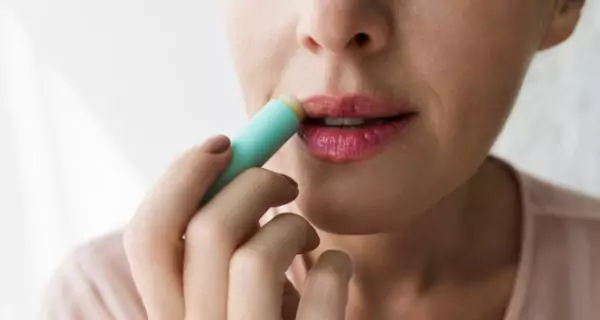
Lip cancer caused by sun damage is largely preventable. With a few simple habits and daily care, you can protect your lips and lower the risk.
Do lip balms with SPF really work?
Yes, they do. Here’s how to use them correctly for real protection:
- Choose a lip balm with SPF 30 or higher
- Reapply every two hours, especially after eating, drinking, or swimming
- Avoid gloss-only products without SPF; they worsen sun damage by reflecting more sunlight.
It’s recommended to apply a protective balm to the lips at least 30 minutes before going out and reapply it throughout the day.
What other habits can protect your lips?
You don’t need a complicated routine. A few simple habits can go a long way in preventing lip sunburn and keeping your lips healthy:
- Wear a wide-brimmed hat to shield your face and mouth
- Avoid the midday sun (10 a.m. to 4 p.m.)
- Stay hydrated to keep your lips from drying and cracking
- Check your lips regularly for any unusual spots, sores, or changes
- Schedule regular oral health checkups; the dentist can detect early signs of lip damage or cancer
When should you see a dentist about a lip sunburn?
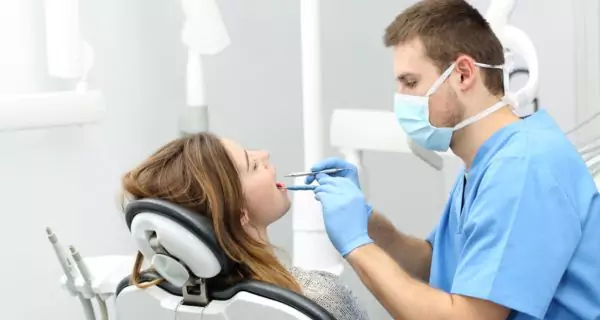
Usually, sunburned lips heal on their own in a few days. But if something doesn’t feel right or doesn’t go away, get it checked. See a dentist or doctor if:
- your lips feel unusually sore after sun exposure
- you notice white, red, or scaly patches that don’t improve
- a sore or bump hasn’t gone away after two weeks (14 days)
- you’ve had frequent lip sunburns in the past
- you feel unusual numbness, tingling, or pain
Early detection can prevent progression to oral cancer. A dentist can spot warning signs you might not notice and help you take action before the problem gets worse.
What can a dentist do for sunburned or damaged lips?
If your lips have been damaged by the sun or just aren’t healing like they should, a dentist can help. They can:
- Examine your lips for early signs of actinic cheilitis or lip cancer
- Recommend or prescribe soothing balms or topical treatments to help with healing
- Refer you to a specialist or order a biopsy if something looks suspicious
- Give you advice on how to better protect your lips from future sun damage
- Monitor any spots or changes over time to catch problems early
If you’re diagnosed with actinic cheilitis, treatment may include:
- Fluorouracil cream: a topical medication that targets and destroys abnormal cells on the lips before they turn into cancer.
- Cryotherapy: a simple in-office procedure where the damaged area is frozen with liquid nitrogen to remove unhealthy tissue.
These treatments are quick and effective, especially when the problem is caught early. It is very important to get regular checkups and pay attention to your lips.
Why is summer a risky time for your lips and oral health?
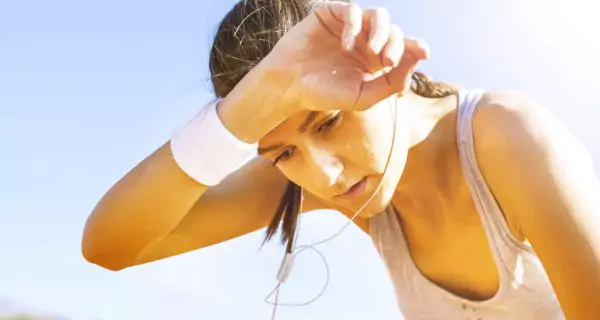
Summer is all about sunshine, vacations, and being outdoors;, but it also brings extra challenges for your lips and mouth. It is a time to be especially careful.
- More UV exposure: Whether you’re at the beach, hiking, or just enjoying a sunny day, your lips are exposed to stronger sunlight for longer periods, increasing the risk of lip sunburn.
- Dehydration: Hot weather makes you sweat more; if you’re not drinking enough water, your lips can become dry, cracked, and vulnerable to damage.
- Skipping routines: During summer holidays, it’s easy to forget regular habits like using lip balm with SPF or going to the dentist. This is exactly when you need those habits the most.
- Outdoor sports and activities: Being active outside means more time in the sun and wind, which can dry out and irritate your lips even further.
Even though summer is fun, don’t forget to care for your lips. A simple protection now can save you from bigger problems later.
Conclusion
Lip sunburn isn’t just a cosmetic issue. Yes, it can be uncomfortable and painful, but more importantly, it can be truly dangerous to health. Repeated sun damage can dry out your lips, delay healing, and lead to conditions like actinic cheilitis or even lip cancer.
The good news is that it’s preventable. You can protect your lips by using SPF lip balm, avoiding sun exposure during peak hours, drinking plenty of water, and checking your lips regularly for any changes.
Note: be mindful: if something on your lips doesn’t look or feel right, don’t wait and see your dentist.
Frequently Asked Questions (FAQ)
References
1. Cleveland Clinic. (2024, October 7). Lip cancer. Cleveland Clinic. https://my.clevelandclinic.org/health/diseases/21933-lip-cancer
2. Lowe, A. (n. d). Lip cancer: what you really need to know. Oral Health Foundation. https://www.dentalhealth.org/blog/lip-cancer
3. Mayo Clinic Staff. (2023, November 28). Lip cancer – Symptoms and causes. Mayo Clinic. https://www.mayoclinic.org/diseases-conditions/lip-cancer/symptoms-causes/syc-20355079
4. Nall, R. (2023, April 20). Sunburned lips. Healthline. https://www.healthline.com/health/sunburned-lips
5. NCI. (2025, May 16). Lip and Oral Cavity Cancer Treatment. National Cancer Institute. https://www.cancer.gov/types/head-and-neck/patient/adult/lip-mouth-treatment-pdq







